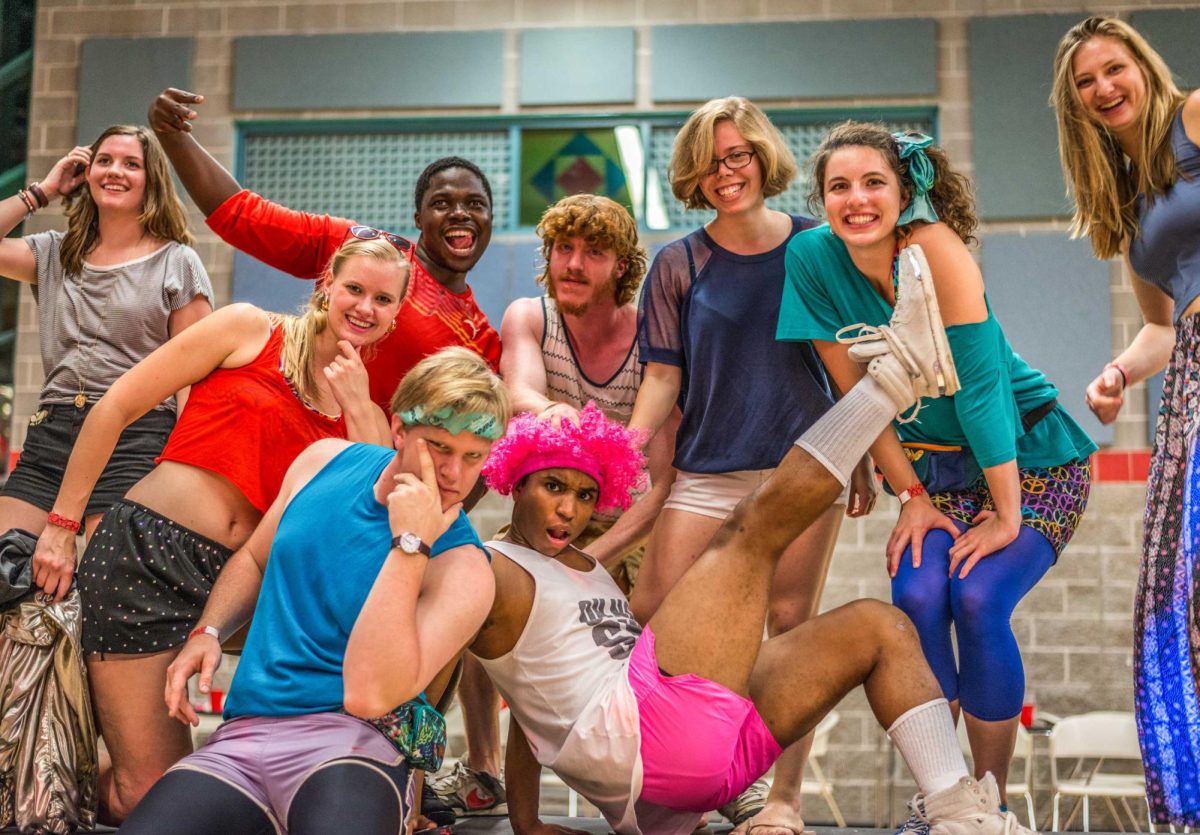This past week, the Center for the Humanities and the Institute for Global Engagement brought Françoise Vergès to campus, where she gave a talk on Wednesday, Sept. 18 about her latest book, “A Decolonial Feminism.”
The talk was focused on a concept she calls the “cleaning and caring industry,” the social phenomena of women as cleaners, especially women of color, cleaning and preparing the spaces for those of a higher economic status.
She explored the concept of the economy of exhaustion powered by capitalism, as well as the contrast between tired bodies of women of color versus the performing body of the corporate man.
Vergès finished the talk by saying, “None of this work is ever really finished because somewhere in the world, something is being broken, damaged, dirtied. … As we repair the past, we must also repair the current damage, because the past is our present.”
Vergès, born in Paris and raised on Reunion Island, an overseas region of France, is a French feminist activist and theorist, as well as a political scientist and historian. Her work, both theoretical and activist, is centered upon decolonization, which she has written about broadly under the lens of feminism.
She began her way down the feminist activist path when she attended university in France in the 70s, focusing at that time on anti-racist and anti-imperialist feminist activism. Not long after that, she got involved in journalism— which she considered to be deeply connected to her activism—and collected the testimonies of women living in military dictatorships.
As someone who has lived in Reunion Island, France, the United States, Mexico, Algeria, and the United Kingdom, Vergès accumulated a variety of different experiences which fueled her research and deeply influenced her theoretical writing.
In 1983, she was asked to work in San Diego, where she stayed for two years. However, since she did not have a visa at that time, she had to leave the country and consequently lived in Tijuana, Mexico, where she waited for her papers to arrive so she could go back to the United States.
In Mexico, she lived right next to the U.S. border, and became very interested and impacted by that environment.
“It was an interesting experience, because in the US consulate, I could see people who were from Honduras, Mexico, Guatemala, El Salvador, fleeing the war that had been launched by US imperialism,” she said.
She observed how “white supremacy was at play,” and became interested in the art originating from these circumstances—“how artists were active into the politicization of the question of the border. So, it [would] not just be an administrative question or … geographical question, but deeply cultural and political.”
When she was able to go back to the United States, Vergès graduated with a degree in women’s studies and political science and obtained a doctorate degree in political science in 1995 from the University of California, Berkeley. She has since written work on memories of slavery, the postcolonial museum, colonialism and imperialism, racial capitalism and decolonial feminism.
An important part of her work is language: figuring out how something can be translatable or if it’s not translatable at all.
“There is a certain thing in our world today, that everything has to be transparent, accessible. And I think it’s very important to keep the certain feeling of oneness that, ‘no, the world is not for you, the world has not been made, you know, accessible.’ Like everything has to be, everything has to be translatable … no, no. You have to understand that this is not you, the world is not one and this accessibility is a very colonial position. That, I thought also was interesting, that translation perhaps should not be constant.”
In other words, she would like to keep alive the notion that sometimes we do not need to be taught or explained everything beyond what we know, or what we’re used to. We, especially in the context of cultures, languages and different societies, should find a way to learn on our own, and not expect others to do it for us.
Vergès, both a theorist and activist, knows the struggle and controversies within feminism that come with finding a balance between the two.
“There can be frustration, but there can be also an incredible enrichment on both sides,” she said. “What I find for me is [to] always kick [myself] awake … [to] not become complacent … to always want to learn more, to be constantly questioned … so my theory can question my activism and vice versa, constantly. In activism, what is interesting is, like, to find yourself in front of the [individual], you know, it’s not a text, it’s people in front of you … and they ask you that question that does not fit into theory. And so that’s interesting, because you remain close to humanity, to the humanness of people.”
While discussing Sarah Ahmed’s works, Vergès gave advice on what it meant for her to live a feminist life. “Love women. Yeah, loving women. And also fighting. I mean, of course, supporting, but also fighting for women’s liberation within the liberation for all. [Understanding,] really, that feminism is a contribution to the liberation of all, and not just of women.”


















































